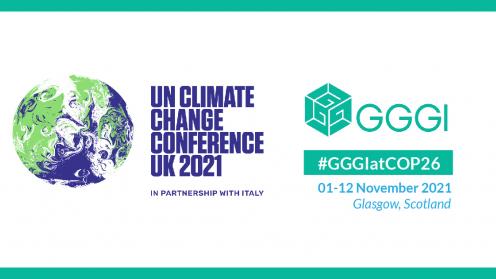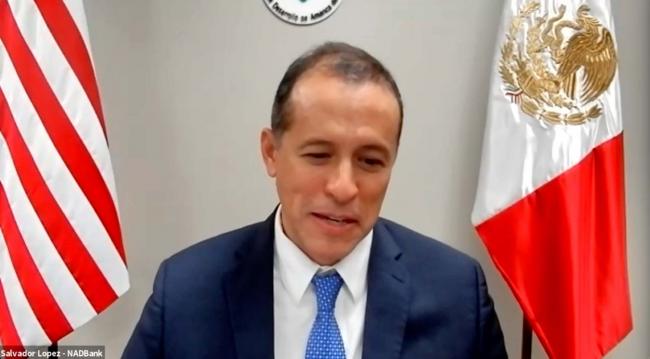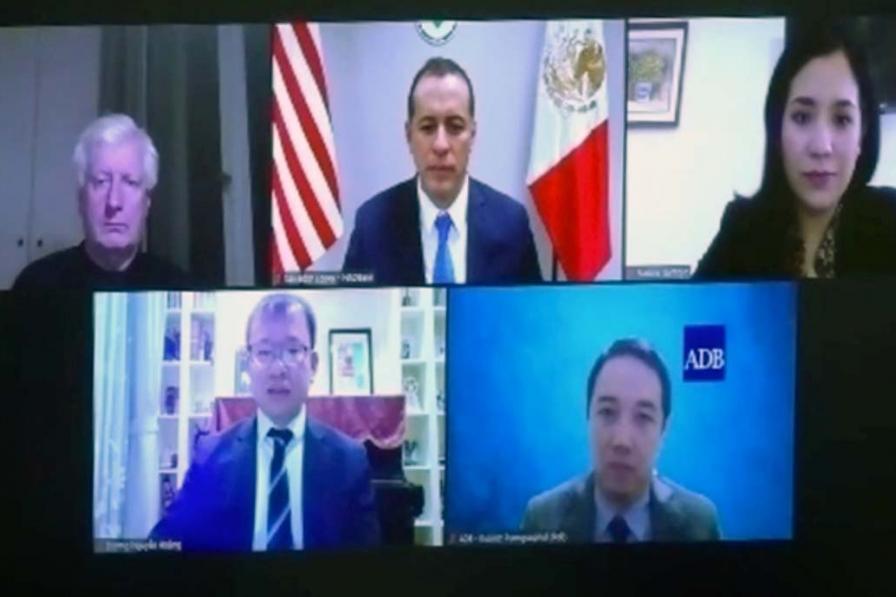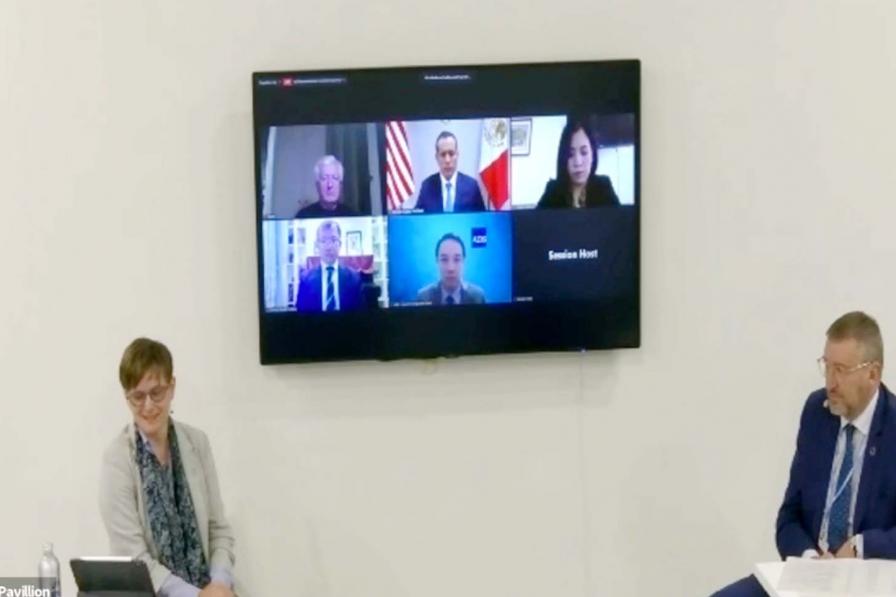Leveraging Sustainable Finance in Emerging Economies for the Delivery of the Paris Agreement
Sustainable finance has a critical role to play in the transition towards a low-carbon economy and the ultimate delivery of the Paris Agreement. Discussing challenges in boosting green bond markets in emerging economies, lessons learned, and future initiatives, stakeholders from development banks in Latin America, Asia, and Europe came together for an event that, among other things:
- showcased examples of initiatives in Viet Nam and Mexico to increase sustainable investment through the green bond market;
- addressed how to deal with the challenges of a low supply of green bonds and certainty of investors; and
- emphasized the importance of sustainability bond policy frameworks to spur growth.
The Global Green Growth Institute (GGGI) and the Government of Luxembourg co-hosted this event.
Panel Discussion
Ingvild Solvang, GGGI, moderated this hybrid session, stating that although the global green bond market has reached a record USD 1 trillion, this only represents a small portion of the total bond market which is around USD 123 trillion. She initiated the first round with the panelists, which focused on the main challenges to increasing green bonds in emerging markets and how to address them.
In a video address, Ban Ki Moon, GGGI President and Chair and former UN Secretary-General, emphasized that financial markets must be part of the solution to help accelerate climate action. Markets, he said, can play a key role in the transition to a low carbon economy which then increases market resilience and investment opportunities.
Jean-Marie Masse, Managing Director, Blue Like an Orange Sustainable Capital, explained green, social, sustainable, and sustainability-linked (GSSS) bonds help fund certain sustainable and socially responsible projects, such as clean transport, hospitals, and renewable energy projects. Masse said a main challenge is that the supply of green bonds does not meet the high demand; globally, green bonds average around 5% of the global bond market but demand is soaring. He said another main challenge is a lack of diversification in the marketplace, with around 80% of green bonds issued by China. Masse emphasized the need to bring new issuers to the market.
Nguyen Hoang Duong, Ministry of Finance, Viet Nam, discussed Viet Nam’s strong commitment to sustainable economic development and achieving net-zero emissions by 2050. Nguyen reiterated that the national green bond market is not large enough to meet demand. The Finance Ministry and partners have, he said, focused on increasing awareness and capacity of issuers, improving policy guidance for potential investors and issuers, and stimulating the market through demonstration via a pilot market.
Kosintr Puongsophol, Asian Development Bank, described the Bank’s role in developing frameworks for companies wanting to issue green bonds in the Association of Southeast Asian Nations (ASEAN) region. One lesson learned, he said, is the importance of having local external reviewers who speak the local languages and are familiar with local culture, to navigate the national bond market. Puongsophol added that collaborations with GGGI and the development of a multi-currency bond framework will help increase mobilization of green bonds in the regional markets.
André Weidenhaupt, Director General, Department of the Environment, Ministry of Sustainable Development and Infrastructure, Luxembourg, said his country’s financial market is one of the largest in the world, giving the country a sizable role in the sustainable finance transition. He added that Luxembourg, in partnership with the European Investment Bank (EIB), launched one of the first sustainability bonds and the EIB Climate Finance Platform, which promotes sustainable finance at the national and international levels.
Natalia Santoyo Rivera, Deputy Director, Nacional Financiera (NAFIN), summarized lessons learned such as the need for: commitment at the highest institutional levels for financial support for climate resilience and green bonds; collaboration with the international climate finance community; and technical assistance from international organizations. These factors, she said, helped NAFIN gain accreditation from the Green Climate Fund.
Salvador Lopez, Chief Environmental Officer, North American Development Bank (NADB), said the Bank initially focused efforts on waste treatment and clean water, but now has a large portfolio in climate-focused project financing. He agreed with the need for high-level support from both the Mexican and US governments within the NADB’s Board of Directors and for a strong legal framework to provide certainty for investors.
Ingvild Solvang transitioned the panel to the second round of questions to focus on successful initiatives from their regions or institutions. Lopez highlighted the issuance of three green bonds since 2018 and US-Mexico border development projects, in which grants were also needed to reach the funding goals.
Rivera said NAFIN is looking to proceed with the development of a sustainability bond framework, in collaboration with GGGI, as well as operationalizing its own sustainable fund.
Weidenhaupt celebrated the success of Luxembourg’s International Climate Finance Strategy, which, he said, aided in capacity building and long-term development of green bond finance in Vietnam.
Nguyen said Viet Nam’s Ministry of Finance will continue work on its green growth strategy and a policy framework to create green bonds and spur the national market, in collaboration with partners like the ADB, the United Kingdom, and Luxembourg.
Puongsophol highlighted the ADB’s intent to scale up the green bond market, issue guidance to help issuers properly price their bonds, and create green social sustainability bond standards. Masse spoke about a shining example he saw from a development bank in Togo in issuing a successful initial green bond for around USD 750 million, with a resulting demand from investors for over USD 1 billion. He said this would incentivize further green investment in the region.
Solvang closed the event urging the audience to take lessons so the community can go from the “why to the how” on funding low carbon development initiatives.
Contact
Hee Kyung Son | h.son@gggi.org
More Information
To receive free coverage of global environmental events delivered to your inbox, subscribe to the ENB Update newsletter.









